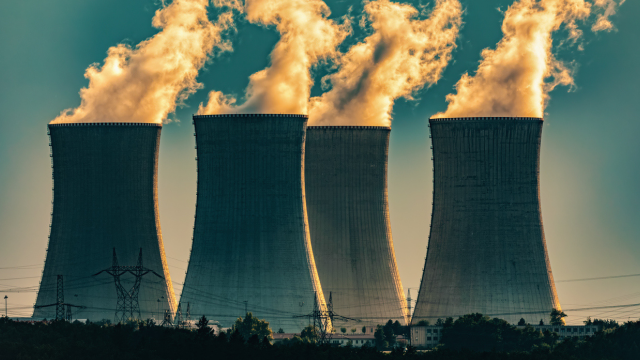Australia’s leading science organisation the CSIRO has published an open letter defending its work on energy costs from technologies like solar, wind, and nuclear, after federal opposition leader Peter Dutton claimed that the report had been “discredited”.
Last week, the Opposition leader claimed the GenCost report, a paper that estimates energy generation costings from different sources, had been “discredited.”
“It’s not relied on. It’s not a genuine piece of work. It doesn’t take into account some of the transmission costs, the costs around subsidies for the renewables,” Dutton said, per the ABC. He also told a fib: the GenCost report does include transmission costs.
His response on why the CSIRO couldn’t be relied on? “I think that’s been well documented”. A very (wrong) hot take.
These comments, got CSIRO chief executive Dr Doug Hilton riled up that he decided to put pen to paper through an open letter, and defended the organisation against such criticisms.
“For science to be useful and for challenges to be overcome it requires the trust of the community. Maintaining trust requires scientists to act with integrity. Maintaining trust also requires our political leaders to resist the temptation to disparage science,” Hilton said in the letter.
“The GenCost report is updated each year and provides the very best estimates for the cost of future new-build electricity generation in Australia. The report is carefully produced, its methodology is clearly articulated, our scientists are open and responsive to feedback, and as is the case for all creditable science, the report is updated regularly as new data comes to hand.”
Naturally, Dutton made a response. Also per the ABC: “My point is that we need to compare apples with apples. At the moment, that report that was released, it doesn’t take into consideration all of the costs around renewables. I’m strongly in favour of renewables, but we need to keep the lights on and we need to keep our prices down.”
The CSIRO has been extremely careful with nuclear, when it put out its draft report in December, the company also put out a blog post explaining that it wasn’t against the technology, but when solar and wind are so much cheaper to produce, it simply wasn’t economical to pursue. The organisation’s estimations found that energy from Small Modular Reactors, or SMRs, would cost $509 per megawatt hour in 2023 (and could drop to $282 in 2030), while energy from wind and solar costs $112 in 2023, and could be as low as $82 in 2030.
Keep in mind, at the time, the closest SMR project to what Australia would hypothetically roll out had just been scrapped, the Carbon Free Power Project. It was binned because more recent costings were up to 70 per cent higher than originally calculated. It wasn’t even a controversial finding for CSIRO – it had the exact same opinion the year prior.
As someone who has been trying to follow this closely, nuclear seems to be poisoning the well a bit. The amount of vitriol I’ve seen online coming from nuclear advocates, and in my own inbox when I’ve written about the topic, has been exhausting, when the reality is that our leading scientists are saying it’s just not economical. We can beat the drum as much as we want, but even if they weren’t saying that energy providers would likely find out the hard way.
I can trust the CSIRO on nuclear, and so should you.
Image: iStock
